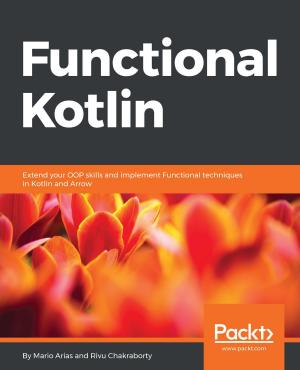Mastering Selenium WebDriver
Nonfiction, Computers, Programming, Software Development, Internet, Web Development| Author: | Mark Collin | ISBN: | 9781784397708 |
| Publisher: | Packt Publishing | Publication: | August 27, 2015 |
| Imprint: | Packt Publishing | Language: | English |
| Author: | Mark Collin |
| ISBN: | 9781784397708 |
| Publisher: | Packt Publishing |
| Publication: | August 27, 2015 |
| Imprint: | Packt Publishing |
| Language: | English |
Increase the performance, capability, and reliability of your automated checks by mastering Selenium WebDriver
About This Book
- Create an extensible test framework in Java supporting parallel execution with TestNG
- Understand the power, simplicity, and limitations of the core Selenium framework
- Write clear, simple, readable, and reliable tests that perform complex test automation tasks
Who This Book Is For
If you are a software tester or a developer who has learnt the basics of Selenium using the WebDriver API and is now ready to take the next step, then this is the book for you.
What You Will Learn
- Provide fast, useful feedback with sensible errors and screenshots
- Create extensible, well-composed page objects
- Gain an in-depth understanding of implicit and explicit waits, and how you should use them
- Leverage the full power of the Actions API
- Explore the full potential of the JavascriptExecutor
- Extend Selenium’s capabilities by integrating other applications
- Learn how to plug third-party products into Selenium, and where it is appropriate to do so
In Detail
Selenium WebDriver, also known as Selenium 2, is a UI automation tool used by software developers and QA engineers to test their web applications on different web browsers. The Selenium WebDriver API is fully object oriented compared with the deprecated Selenium RC. The WebDriver API provides multi-language support and run tests on all the most popular browsers.
In this wide and complex World Wide Web era, this book will teach you how to tame it by gaining an in-depth understanding of the Selenium API.
This book starts with how to solve the difficult problems that you will undoubtedly come across as you start using Selenium in an enterprise environment, followed by producing the right feedback when failing, and what the common exceptions are, explain them properly (including the root cause) and tell you how to fix them. You will also see the differences between the three available implicit waits and explicit waits, and learn to working with effective page objects.
Moving on, the book shows you how to utilize the Advanced User Interactions API, how you can run any JavaScript you need through Selenium, and how to quickly spin up a Selenium Grid using Docker containers.
At the end, the book will discuss the upcoming Selenium W3C specification and how it is going to affect the future of Selenium.
Style and approach
This book is a pragmatic guide that takes you through the process of creating a test framework. It then shows you how you can extend this framework to overcome common obstacles that you will come across whilst using Selenium.
Increase the performance, capability, and reliability of your automated checks by mastering Selenium WebDriver
About This Book
- Create an extensible test framework in Java supporting parallel execution with TestNG
- Understand the power, simplicity, and limitations of the core Selenium framework
- Write clear, simple, readable, and reliable tests that perform complex test automation tasks
Who This Book Is For
If you are a software tester or a developer who has learnt the basics of Selenium using the WebDriver API and is now ready to take the next step, then this is the book for you.
What You Will Learn
- Provide fast, useful feedback with sensible errors and screenshots
- Create extensible, well-composed page objects
- Gain an in-depth understanding of implicit and explicit waits, and how you should use them
- Leverage the full power of the Actions API
- Explore the full potential of the JavascriptExecutor
- Extend Selenium’s capabilities by integrating other applications
- Learn how to plug third-party products into Selenium, and where it is appropriate to do so
In Detail
Selenium WebDriver, also known as Selenium 2, is a UI automation tool used by software developers and QA engineers to test their web applications on different web browsers. The Selenium WebDriver API is fully object oriented compared with the deprecated Selenium RC. The WebDriver API provides multi-language support and run tests on all the most popular browsers.
In this wide and complex World Wide Web era, this book will teach you how to tame it by gaining an in-depth understanding of the Selenium API.
This book starts with how to solve the difficult problems that you will undoubtedly come across as you start using Selenium in an enterprise environment, followed by producing the right feedback when failing, and what the common exceptions are, explain them properly (including the root cause) and tell you how to fix them. You will also see the differences between the three available implicit waits and explicit waits, and learn to working with effective page objects.
Moving on, the book shows you how to utilize the Advanced User Interactions API, how you can run any JavaScript you need through Selenium, and how to quickly spin up a Selenium Grid using Docker containers.
At the end, the book will discuss the upcoming Selenium W3C specification and how it is going to affect the future of Selenium.
Style and approach
This book is a pragmatic guide that takes you through the process of creating a test framework. It then shows you how you can extend this framework to overcome common obstacles that you will come across whilst using Selenium.















